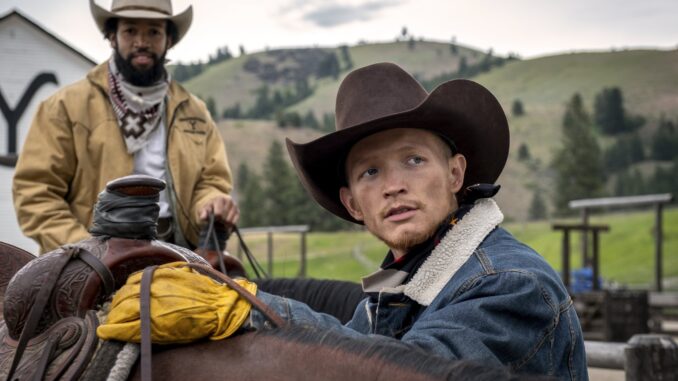
Why Yellowstone Became a Dirty Word to so Many Montanans
Yellowstone. The word itself, for many, conjures images of unblemished wilderness, geysers erupting under a boundless sky, bison roaming ancient plains, and the raw, untamed heart of America. It is a national treasure, a global icon, a monument to conservation. Yet, for a growing number of Montanans, especially those who live within its gravitational pull, the word has curdled. It’s no longer just a place, but a symbol – a loaded term that evokes not awe, but exasperation, resentment, and a profound sense of loss. To them, Yellowstone has become a dirty word.
The paradox lies in its very success. For decades, Montanans felt a quiet pride in bordering such a magnificent spectacle. The park was an extension of their rugged identity, a testament to the wild beauty they cherished. They tolerated the influx of summer visitors, understanding that the economic boost, while modest, was a necessary exchange. Locals would occasionally venture into the park themselves, seeking the solitude and majesty that defined their home.
But sometime in the last decade, perhaps irrevocably accelerated by a global pandemic that made wide-open spaces a precious commodity, the trickle turned into a deluge. The park, once a destination, became a magnet, sucking in millions, and in doing so, fundamentally altering the landscape and lives around it.
Consider the practicalities. Picture a quiet Friday afternoon in Livingston or Gardiner, towns that once served as unassuming gateways. Now, imagine a summer afternoon. The two-lane highways are choked with bumper-to-bumper RVs, rental SUVs, and tour buses. A simple trip to the grocery store becomes an exercise in white-knuckled patience. The roads, designed for a different era, crumble under the weight. Gas stations are perpetually busy, public restrooms overwhelmed. The very air, once crisp with the scent of pine and sage, is often thick with exhaust. This isn't just an inconvenience; it's a daily erosion of quality of life, a constant reminder of being out-resourced and outnumbered in one's own backyard.
Then there’s the economic double-edged sword. Yellowstone undoubtedly creates jobs. But for whom, and at what cost? Locals often find themselves working multiple low-wage service industry jobs – cleaning hotel rooms, flipping burgers, guiding rafts – just to make ends meet. Meanwhile, the demand for housing has skyrocketed, driven by wealthy out-of-state buyers and the proliferation of short-term rentals. A modest three-bedroom house in a gateway community, once attainable for a working-class family, now commands prices that are eye-watering, often seven figures. Sarah, a third-generation Montanan, a waitress who used to dream of buying her grandmother's small house, now scrolls through Zillow with a sigh, knowing her children will likely never afford to live in the town where they were born. She sees her town transformed into a playground for the rich, and a struggle for everyone else.
Beyond the daily grind, there's a deeper, more existential friction. Yellowstone is a federal park, managed by the National Park Service, often with priorities that seem to clash with local Montana interests. Take the bison, for example. When Yellowstone's iconic herds migrate outside the park's boundaries, seeking winter forage, they become a contentious issue for ranchers concerned about disease transmission and grazing competition. For generations, Montanans have managed their land and their wildlife. Suddenly, they feel powerless, dictated to by distant federal mandates and urban environmental groups who see the bison as an untouchable symbol, while local ranchers see their livelihoods threatened. The wolves, reintroduced in the 1990s, evoke similar sentiments: a triumph for conservationists, a source of frustration for those who live with the direct impacts of increased predation on livestock and big game.
Most profoundly, Yellowstone has become a dirty word because it represents a perceived loss of Montana's soul. The state, once synonymous with rugged individualism, vast emptiness, and a quiet, unpretentious way of life, now feels like it's being "loved to death." The tranquility is gone. The secret fishing spots are crowded. The sense of community, once forged in shared hardship and a common understanding of the land, is diluted by a constant churn of visitors and new residents who often arrive with different values, expectations, and a perceived entitlement to the "Montana experience."
Yellowstone, once a shared source of pride, has become a symbol of a deeper unease. It represents the unchecked growth, the skyrocketing cost of living, the feeling of being overwhelmed, and the fear that the very essence of what made Montana, Montana, is being irrevocably altered. It’s a bitter irony that the crown jewel of conservation, meant to preserve wildness, is now, for many Montanans, synonymous with the erosion of their own wild and independent spirit. It is no longer just a park; it is a painful reminder of what they have lost, and what they continue to lose, in its shadow.
